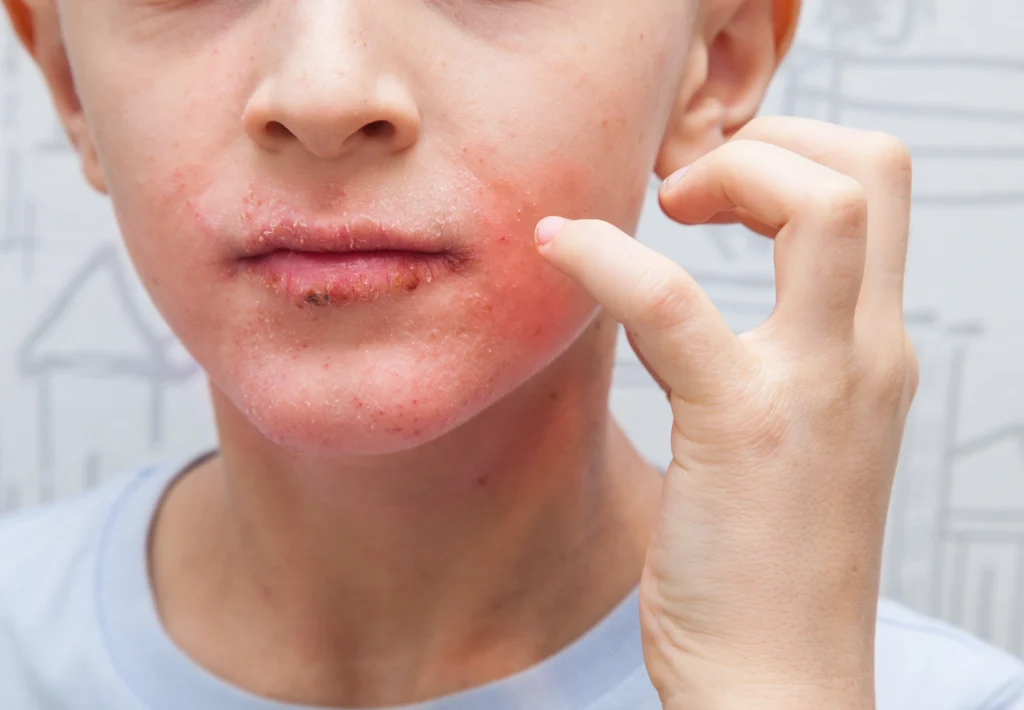Cellulitis is a widespread and potentially severe bacterial infection impacting the deeper skin layers and tissues beneath. It can cause redness, swelling, pain, and warmth in the affected area, often leading to discomfort and health complications if left untreated. Understanding the causes, recognizing skin infection symptoms early, and seeking timely cellulitis treatment are essential to prevent the infection from spreading and ensure a faster recovery.
Cellulitis occurs when bacteria, typically Streptococcus or Staphylococcus species, enter the skin through cuts, wounds, insect bites, or surgical incisions. The infection can develop rapidly, spreading to nearby tissues and causing inflammation. While anyone can develop cellulitis, individuals with weakened immune systems, diabetes, or poor circulation are more susceptible.
Furthermore, certain conditions such as athlete’s foot or eczema may cause breaks in the skin that increase the risk of infection. Proper wound care and hygiene are critical to preventing cellulitis from developing after skin trauma. Recognizing early skin infection symptoms can help you act swiftly to prevent serious complications like abscesses or bloodstream infections.

The early identification of cellulitis is crucial for effective treatment. Symptoms generally appear suddenly and worsen quickly. Common skin infection symptoms include:
Sometimes, cellulitis affects the legs, but it can appear anywhere on the body. If untreated, the infection can progress and lead to serious health risks, including lymphangitis or sepsis. Therefore, noticing these symptoms early and seeking medical advice is important.
Once cellulitis is diagnosed, prompt medical treatment is necessary. The standard cellulitis treatment usually involves antibiotics to eliminate the bacterial infection. Depending on the severity, these may be prescribed as oral medications or require intravenous administration in hospital settings.
Along with antibiotics, home care plays an important role in recovery. Applying cool compresses can help reduce swelling and discomfort, while elevating the affected limb improves circulation and decreases inflammation. It is also important to keep the infected area clean and avoid scratching or further trauma to prevent worsening.
In cases where abscesses form, drainage by a healthcare professional may be necessary. Completing the entire antibiotic course, even if symptoms ease, is crucial to avoid relapse.. If you experience worsening symptoms or develop new signs like spreading redness or high fever, seek immediate medical attention.
Avoiding cellulitis through prevention is more effective than treating it later. Maintaining good skin hygiene and protecting the skin barrier can significantly reduce the risk of bacterial entry. Some preventive measures include:
Additionally, if you notice any signs of skin infection symptoms, early consultation with a healthcare provider is advised. Early intervention can stop cellulitis from developing into a more severe condition.
While minor cases of skin redness and irritation might resolve with basic care, cellulitis requires professional medical evaluation. Consult a doctor or visit a hospital like Unidental if you observe:
Healthcare professionals can provide an accurate diagnosis, often based on physical examination and medical history. In some cases, lab tests or imaging may be necessary to rule out other conditions or complications.
Recovery from cellulitis depends not only on medical treatment but also on supportive care. Staying hydrated, eating a balanced diet rich in vitamins and minerals, and getting adequate rest helps strengthen the immune system.
Avoiding smoking and alcohol can also improve healing outcomes. Additionally, follow-up visits are important to ensure the infection has cleared completely. Learning about your personal risk factors can help prevent future infections and maintain healthy skin.
Cellulitis is a serious skin infection that requires early recognition and prompt treatment to avoid complications. Understanding skin infection symptoms and following effective cellulitis treatment can help you recover quickly and reduce future risks. For expert diagnosis and care, trust Unidental to provide personalized treatment with compassion and expertise.
Cellulitis is caused by bacteria entering through breaks in the skin such as cuts, wounds, insect bites, or skin conditions that compromise the skin barrier.
Look for symptoms like redness, swelling, warmth, pain, and sometimes fever. The affected skin often feels tender and the redness may spread quickly.
Cellulitis isn’t contagious, but the bacteria behind it can spread via direct contact with infected wounds.
Antibiotics are the primary treatment, sometimes requiring oral or intravenous administration depending on severity. Proper wound care and rest support healing.Can cellulitis be prevented?
Yes. Keeping the skin clean, promptly treating wounds, avoiding skin injuries, and managing chronic health conditions reduce the risk of cellulitis.
Hyderabad : +91 6305 971445
Anantapur: +91 70758 90089
Goa: +91 83266 32500
Mon to Sat 10:00AM to 8:00PM
Sun 10:00AM to 12:00PM
Lorem ipsum dolor sit amet, consectetur adipiscing elit. Ut elit tellus, luctus nec ullamcorper mattis, pulvinar dapibus leo.

Our goal is to provide friendly, caring dentistry with the highest standards in general, cosmetic, and specialist treatments. We strive to be the best dental hospital for comprehensive oral care.
We use advanced dental technology to deliver safe, precise, and painless treatments for every patient.